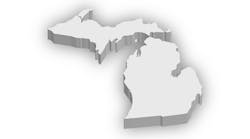Michigan OSHA Offering $5,000 Grants to Help Employers Buy Safety Equipment
The Michigan Occupational Safety and Health Administration is offering matching grants of up to $5,000 for employers to purchase safety equipment.
“We are encouraging employers to step up workplace safety and health during MIOSHA’s 40-year anniversary,” said Martha Yoder, director of the agency. “We are pleased to partner with small employers by offering matching grants of up to $5,000 to make improvements in workplace safety and health. With a total of $500,000 available from MIOSHA, that’s a $1 million investment in keeping Michigan’s workers safe and healthy.”
To qualify for the MIOSHA Safety and Health Improvement Program (MiSHIP) grant, an employer must have 250 or fewer workers and fall under MIOSHA’s jurisdiction. Also:
- A qualified safety professional or a safety committee must have conducted a site-specific evaluation, and there must be a written report with recommendations based on the evaluation, unless the project is for lifting equipment in residential care facilities, or fall protection equipment in residential construction.
- The grant project must be consistent with the recommendations of the safety and/or health evaluation and must directly relate to improvements that will lead to a reduction in the risk of injury or disease to employees.
- The employer must have the knowledge and experience to complete the project, and must be committed to its implementation.
- The employer must be able to match the grant money awarded and all estimated project costs must be covered.
Based on the grant criteria, an eligible project is one designed to reduce the risk of injury to employees as identified in a site-specific safety and/or health evaluation conducted at the site. The site-specific evaluation must identify the injury and illness risks associated with a work task or area, and the recommended actions of the grant project must directly relate to eliminating or minimizing the risks.
Requests for residential fall protection and lifting equipment for in-home care or residential care facilities do not require a hazard evaluation to be performed, MIOSHA noted.
The grant program places priority on projects that affect employment sites that provide goods, manufacturing or processing jobs for the majority of workers; businesses within the current MIOSHA Strategic Plan; and other high-hazard workplaces.
Some examples include:
- Residential fall protection systems
- Lifting equipment or portable lifting equipment for in-home care or small nursing/residential care facilities
- Monitoring equipment for confined-space entry
- Noise-reduction engineering controls
- Lockout/tagout systems
- Cooling systems for agriculture-based worksites
- Eyewash stations for the accommodations industry
A limited number of MiSHIP grants will be available to training organizations. To be eligible, the training organization must make the equipment available to its members for use.
